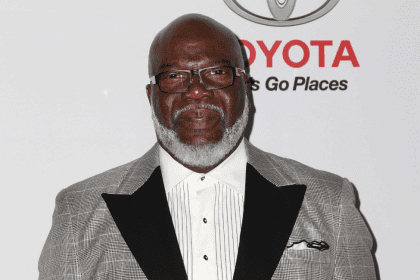Choosing where to pursue higher education is one of the most significant decisions for any student. For many Black students, Historically Black Colleges and Universities (HBCUs) in cities like Atlanta, Washington, D.C., and across North Carolina offer not only a culturally affirming educational experience but also numerous economic benefits.
HBCUs have a long-standing history of empowering Black communities through quality education and professional networking opportunities. Unlike other universities, HBCUs create a unique environment where students can thrive socially, academically and economically. This nurturing culture, coupled with strategic locations like Atlanta, D.C. and North Carolina, offers students a competitive edge in the job market.
Atlanta: The economic hub of the South
Atlanta is not just the home of prestigious HBCUs like Morehouse College, Spelman College and Clark Atlanta University; it is also a booming economic hub. With a diverse economy and thriving industries such as technology, film production and finance, Atlanta offers an extensive job market for HBCU graduates.
Economic benefits of attending an HBCU in Atlanta:
- Internship and job opportunities: Atlanta is known for its vibrant economy. Many Fortune 500 companies, including Coca-Cola, Delta Air Lines and The Home Depot, are headquartered in the city. HBCUs in Atlanta often partner with these corporations, providing students with valuable internships and job placements upon graduation.
- Entrepreneurial ecosystem: Atlanta has earned a reputation as a city that fosters Black entrepreneurship. HBCU students have the chance to engage in this ecosystem, which includes access to start-up accelerators, small business grants and a supportive community of Black business owners.
- Networking opportunities: Atlanta’s HBCUs host various networking events, job fairs and alumni meetups, providing students with direct access to industry professionals. These connections often lead to higher-paying job offers, increasing the economic mobility of HBCU graduates.
Washington, D.C.: The capital of political and economic power
Washington, D.C., is another prime location with renowned HBCUs such as Howard University. Its position as the nation’s capital offers students an array of career paths, especially in government, public policy, health care and international relations.
Economic benefits of attending an HBCU in Washington, D.C.:
- Access to government jobs: The proximity of D.C. HBCUs to federal agencies and governmental bodies is a significant advantage. Students can easily secure internships and employment in high-paying government positions, such as analysts, policy advisors and researchers.
- Health care sector opportunities: D.C. is home to several leading hospitals, research institutions and health care policy organizations. HBCUs in the city often have partnerships with these entities, offering students pathways into the health care industry.
- Scholarship and grant availability: D.C. HBCUs often receive substantial funding from the federal government, local government and private donors. These funds are allocated as scholarships, grants and fellowships, significantly reducing the cost of education for students.
North Carolina: The state of education and innovation
North Carolina boasts a rich network of HBCUs, including North Carolina A&T State University, North Carolina Central University and Winston-Salem State University. The state’s growing economy, fueled by industries like technology, biotechnology, agriculture and finance, offers diverse career paths for graduates.
Economic benefits of attending an HBCU in North Carolina:
- High return on investment (ROI): HBCUs in North Carolina offer relatively affordable tuition compared to other universities. The lower cost of attendance, combined with the high earning potential for graduates in fields like engineering, technology and health care, results in a strong ROI for students.
- Growing job market: North Carolina’s economy has been experiencing steady growth, particularly in the Research Triangle Park area, which hosts companies like IBM, Cisco and GlaxoSmithKline. HBCUs in North Carolina often collaborate with these companies, providing students with internships, research opportunities and job placements.
- Community and alumni support: North Carolina’s HBCUs have strong alumni networks that offer mentorship, job referrals and financial support for current students and recent graduates. The sense of community among HBCU alumni in the state often translates into business partnerships and investment opportunities, fostering economic empowerment within the Black community.
The long-term impact: Wealth building and community investment
Attending an HBCU in cities like Atlanta, D.C. or North Carolina does more than just provide students with a degree; it lays the foundation for long-term wealth building and community investment. HBCU graduates often go on to become entrepreneurs, public officials, educators and health care professionals who contribute significantly to their communities.
The economic benefits of an HBCU education have a ripple effect, not just elevating the individual, but also strengthening Black-owned businesses and local economies. Furthermore, the financial support and networking opportunities available to HBCU students help reduce the economic disparities often faced by Black communities.
Empowerment through education
The economic benefits of attending an HBCU in Atlanta, Washington, D.C., or North Carolina are profound. These institutions do more than educate; they empower students to achieve financial stability and success. From access to lucrative job markets and entrepreneurial ecosystems to robust alumni networks and reduced student debt, the advantages are clear.
Choosing an HBCU in these locations is not just a step towards a degree — it’s an investment in a future where Black students can thrive economically, giving back to their communities and breaking down financial barriers for the next generation. The legacy of HBCUs continues to shine brightly, shaping not just individual lives, but also the broader landscape of Black economic empowerment.
This story was created using AI technology.

















